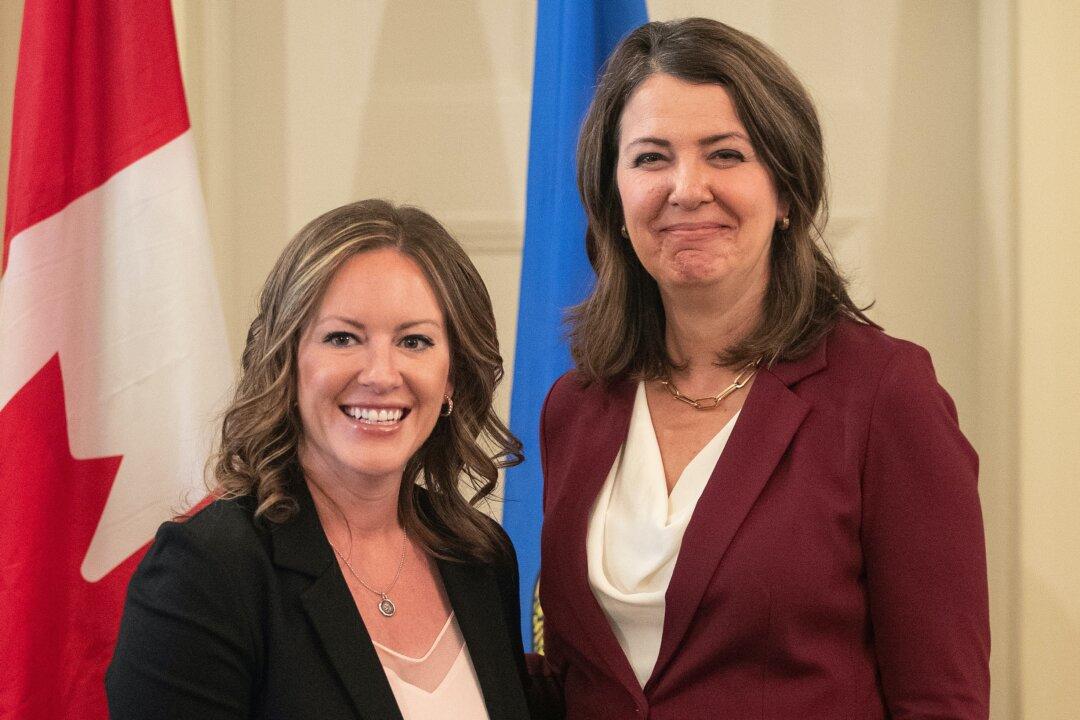Alberta Premier Danielle Smith’s government is launching a national advertising campaign against the federal government’s proposed clean electricity regulations.
At a live news conference on Sept. 28, accompanied by Environment and Protected Areas Minister Rebecca Schulz and Affordability and Utilities Minister Nathan Neudorf, Premier Smith said the campaign would consist of print, radio, television, and social media advertisements.





